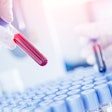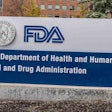
Dear LabPulse reader:
In IVD company news this week, the U.S. Food and Drug Administration (FDA) granted clearance to Abbott for the first commercially available laboratory test to detect traumatic brain injury (TBI). A blood test could help reduce the number of unnecessary CT scans by up to 40%, potentially reducing costs to the healthcare system and the patient as well as the amount of time the patient spends in the emergency department, Abbott said.
The FDA also granted a de novo request allowing QuidelOrtho to market its Sofia 2 SARS Antigen+ FIA test for use by prescription only. The company had been among the first to introduce the rapid antigen test for COVID-19 when the FDA granted it an emergency use authorization (EUA) in May 2020.
At a time when companies who have relied heavily on COVID-19 testing for revenues over the past few years are suffering from year-over-year declines in sales, Veracyte recently announced that revenue for the fourth quarter of 2022 increased 19% compared with Q4 2021. Its CEO recently told LabPulse he sees future revenue growth coming from current genomic testing products, new product introductions, and geographic expansion.
Researchers continue to make progress on the development of in vitro diagnostic tests for the early detection of Alzheimer’s disease. Rowan-Virtua School of Osteopathic Medicine (Rowan-Virtua SOM) and Durin Technologies on Wednesday announced the results of a preliminary study to evaluate a blood test that detected the presence of Alzheimer's disease-related pathology up to 10 years before symptoms arise with nearly 97% accuracy.
Earlier this week, biopharmaceutical firm AriBio and diagnostics manufacturer Fujirebio announced an agreement for the development of biomarkers for Alzheimer’s disease and other neurodegenerative disorders. Fujirebio was among the first companies to develop and market cerebrospinal fluid (CSF) biomarkers for Alzheimer’s disease testing, and was the first to receive an FDA authorization in 2022 for its Lumipulse G β-Amyloid Ratio (1-42/1-40) test.
A blood test for anxiety would also provide clinicians with an early, noninvasive way to help patients. This week, Indiana University School of Medicine researchers said in a study that blood biomarkers may objectively determine an individual’s risk of developing anxiety, the severity of their current anxiety, and which therapies might treat it most effectively.
A few digital pathology firm’s announced partnerships and adoption plans for their products. Hamamatsu inked a multiyear distribution agreement with Siemens Healthineers with the aim of expanding digital pathology adoption. Under the agreement, Hamamatsu will provide its NanoZoomer whole-slide scanners to support Siemens Healthineers’ expansion into digital pathology in the Americas and Europe.
Similarly, Agilent Technologies announced a multiyear distribution agreement with Proscia to offer a comprehensive digital diagnostic pathology system. Combining Agilent's pathology staining solutions with Proscia’s Concentriq Dx enterprise pathology platform will enable pathology labs to transform diagnostic efficiency and quality to improve patient health outcomes, Agilent said.
Meanwhile, Mindpeak’s artificial intelligence (AI) algorithms for immunohistochemistry (IHC) biomarker quantification were made available on the Paige Platform. Additionally, PathAI launched a digital pathology platform and AIM-PDL1 algorithm for non-small cell lung cancer (NSCLC) in partnership with 13 leading academic medical centers, health systems, reference laboratories, and independent pathology institutions across the U.S.
Thank you for reading.
Leo O’Connor
Editor in Chief



















